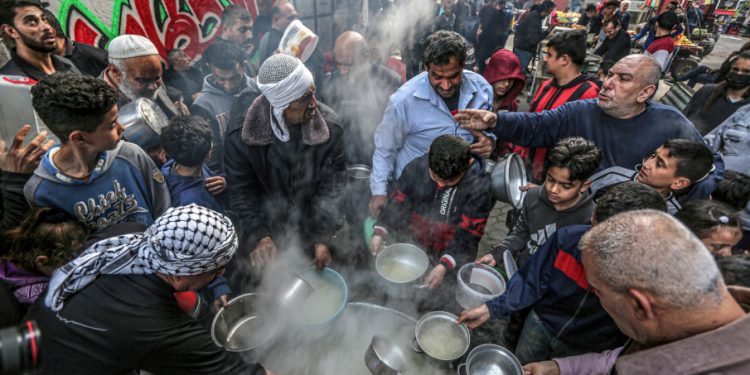Agencies-Gaza post
Russia’s war could cause food crises in Palestine: US to UNSC
Russia’s war could cause food crises in Palestine, US Deputy Ambassador Richard M. Mills on Tuesday said that the war in Ukraine could be caused severe food shortages in the occupied Palestinian Territories.
The attack of Russia has flared fears of worldwide food shortages, as Ukraine is one of the world’s greatest wheat exporters.
The United States has finally admitted that the predicted food shortages may have an effect on Palestinians.
“Food insecurity could increase much worse in the coming weeks, both in Gaza and the West Bank, as prices of food, petrol, and other commodities rise,” he said, citing President Putin’s aggressive aggression against Ukraine.
Mills’ remarks were quoted by Tor Wennesland, the UN Special Coordinator for the Middle East Peace Process, who told the UN Security Council that “increasing prices and market disruptions… endanger food security levels of vulnerable [Palestinian] families.”
Wennesland said that the UN’s quarterly circulation costs for the beleaguered Gaza Strip, where the UN is responsible for about 60% of food distribution, have increased by 42 percent.
Mills’ comments come as a number of privileges groups and non-governmental organizations (NGOs) alerted of possible food shortages and a rise in the price of items such as bread in the West Bank and Gaza.
Oxfam warned earlier this month that wheat stores in the West Bank and Gaza could run out “within three weeks.”
“Rising global food prices have hit Palestinian households hard, and many are struggling to fulfill their basic requirements,” Shane Stevenson, Oxfam’s Country Director in the Occupied Palestinian Territory and Israel, in a press release on April 11said.
“The food crisis is being exacerbated by the reliance on imports and the limits imposed on them by Israel’s ongoing military occupation, settlement violence, and land grabs.”
Ukraine and Russia are two of the world’s greatest wheat growers and exporters. Food supplies have been affected around the world as a result of Moscow’s invasion, and prices have risen.
Tunisia, Egypt, and Lebanon are among the nations in the province running to find other seed sources to feed their populations.
Earlier this month on 18th April in a phone call Abbas and Putin discussed food security among other issues.
“Putin emphasized that Russia will meet all of the needs of Palestinian and other Middle Eastern importers of Russian wheat, materials, and commodities,” according to a Palestinian source.
For basics like wheat and sunflower oil, Middle Eastern nations depend mainly on Russian and Ukrainian shipments. Since Russia raided Ukraine on February 24, food costs have risen dramatically across the area.
Israel-Russia relations have declined since Moscow’s aggression, with Tel Aviv openly criticizing the action and promising to help Ukraine.

















